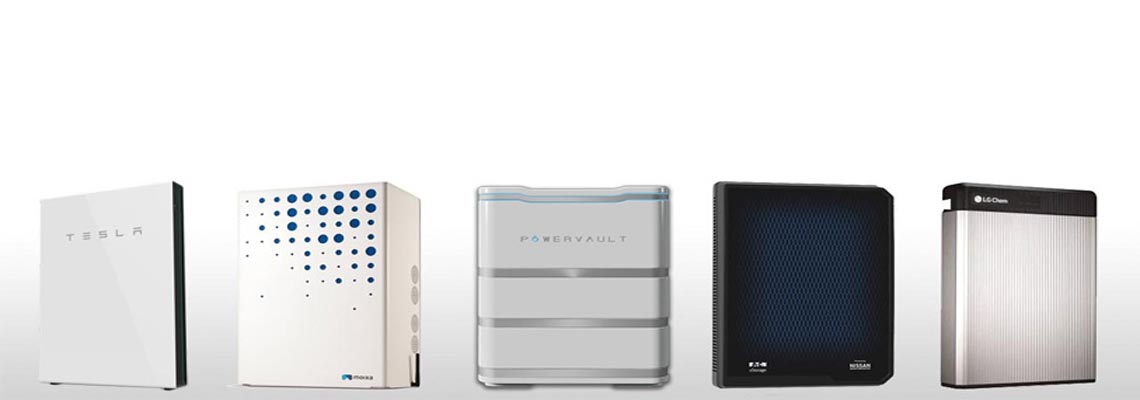The MCS (Microgeneration Certification Scheme) has announced the launch of their certification scheme for energy storage batteries in addition to the existing microgeneration technology schemes.
The new scheme should launch in mid-2019 with a pilot project and is intended to enable the microgeneration industry to install more energy storage systems as they will be able to do so with consumer protection.
The MCS is a quality assurance scheme for a range of microgeneration technologies which produce heat and electricity from low carbon sources of energy. The scheme is supported by the Department for Business, Energy & Industrial Strategy (BEIS).
Interestingly, while the MCS’ press release on the topic talks of the “growing adoption of energy storage technologies”, the solar PV sector of the renewable energy industry seems to underrepresented. As of May 1st 2019 there were just 568 solar PV installers registered with MCS. Reportedly this has dropped from nearly 3,000 since 2016. It seems that a significant number of solar PV installers have chosen not to renew their accreditation, but what has led to the drop?
Possibly, the closure of the government’s Feed-in Tariff (FiT) scheme (which paid solar PV owners for the electricity generated by their panels) has led to uncertainty and confusion about the value of certification; MCS accreditation for both the technology and installer was necessary to ensure the installation was eligible for payments from the government. Without the FiT, the MCS is a mark of quality and offers consumer protection, but the financial incentive for homeowners to hire an MCS installer is gone. Couple this with the fact that businesses have to pay a considerable amount of money to join the scheme and to register each installation they carry out, it’s possible that solar PV installers have deemed the scheme an unnecessary expense.
This is just a theory and hopefully the case, as the MCS is essential to ensuring the microgeneration technology installed in the UK is safe, energy efficient and effective. In addition, while the industry is in a bit of a financial incentive limbo at the moment, the FiT scheme is likely to be replaced by the Smart Export Guarantee. If introduced, this scheme will pay solar PV owners in much the same way as the FiT did, and may also include MCS certification in its eligibility criteria. If confirmed, this means that MCS certified solar PV companies would again have an advantage over non-certified companies in terms of the benefits they can offer customers.
MCS Director, Chris Roberts, said: “We have been working hard on the development of this certification which really complements existing technologies. The move reflects the convergence between technologies as internet connectivity develops and smart meters are rolled out.”
Chief executive of MCS, Ian Rippin, added: “As we continue to support the sector, our battery storage scheme will be backed by scheme requirements managed independently and impartially. This is all about enabling the industry to deliver the best outcomes for the consumers that it serves.
“Registrations under this scheme will sit alongside existing small-scale renewable energy installations that are currently held centrally within the MCS Installation Database. For Installers this represents a one-stop-shop for all of their registrations without the need to access a different system. For consumers, it delivers the benefit of being able to search for all of their renewable energy needs, including battery storage solutions, in one place.”
Chief executive at the Solar Trade Association, Chris Hewett, said: “For our members, this is a natural extension to the existing MCS scheme. Increasingly consumers are seeing the benefit of marrying solar to battery storage, so I welcome the evolution of the MCS to embrace this. I’m particularly pleased that this represents a one-stop solution as it is very important to our members that certification processes become faster and more cost-effective.”






